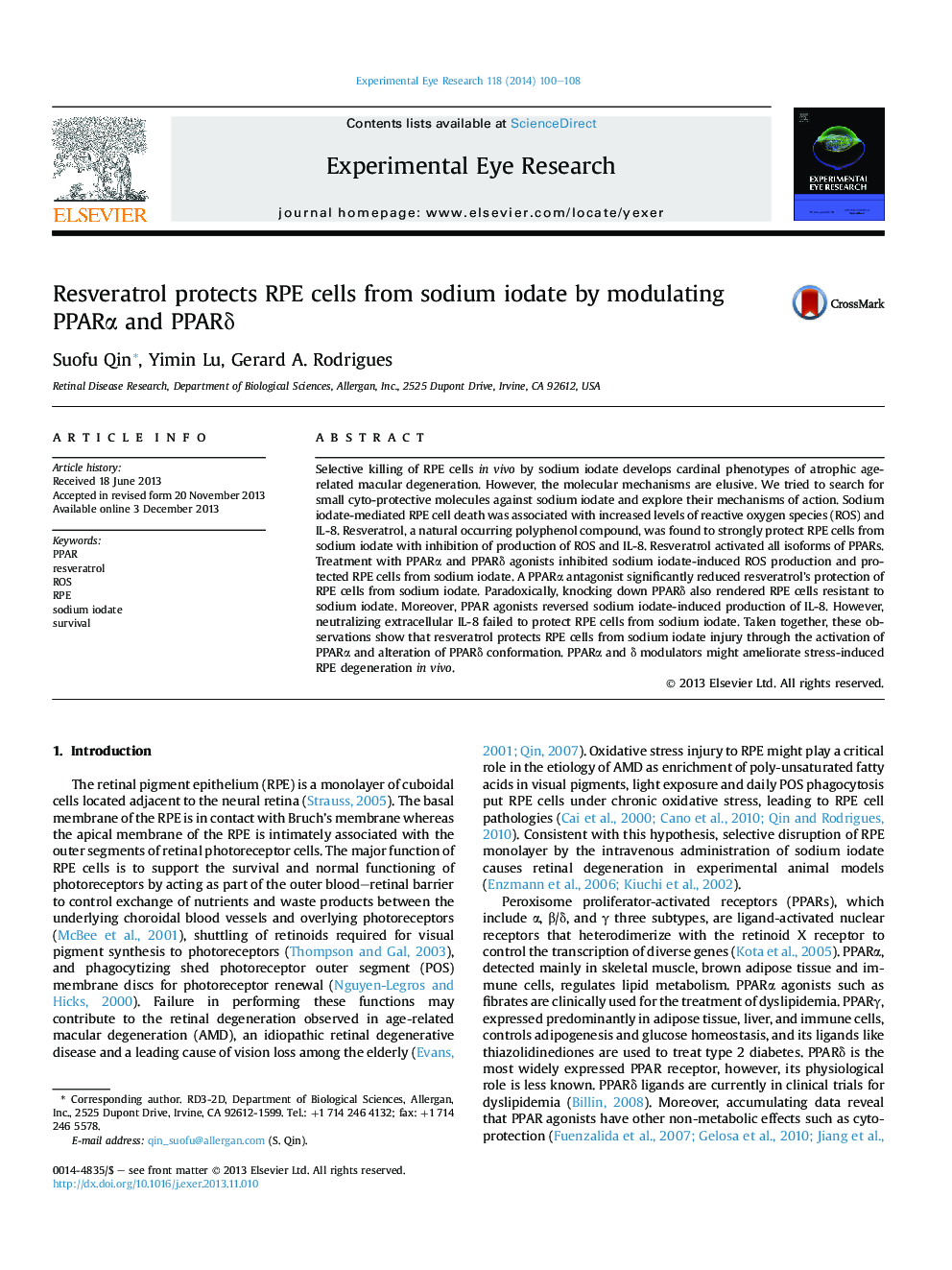| Article ID | Journal | Published Year | Pages | File Type |
|---|---|---|---|---|
| 4011222 | Experimental Eye Research | 2014 | 9 Pages |
•Resveratrol protects RPE cells from sodium iodate.•Resveratrol activates all three PPAR isoforms in ARPE-19 cells.•Activation of PPARα and δ but not γ protects RPE cells from sodium iodate.•PPARα antagonists inhibit resveratrol's cyto-protection.•PPARα and δ modulators might be valuable in treating RPE atrophy-associated diseases.
Selective killing of RPE cells in vivo by sodium iodate develops cardinal phenotypes of atrophic age-related macular degeneration. However, the molecular mechanisms are elusive. We tried to search for small cyto-protective molecules against sodium iodate and explore their mechanisms of action. Sodium iodate-mediated RPE cell death was associated with increased levels of reactive oxygen species (ROS) and IL-8. Resveratrol, a natural occurring polyphenol compound, was found to strongly protect RPE cells from sodium iodate with inhibition of production of ROS and IL-8. Resveratrol activated all isoforms of PPARs. Treatment with PPARα and PPARδ agonists inhibited sodium iodate-induced ROS production and protected RPE cells from sodium iodate. A PPARα antagonist significantly reduced resveratrol's protection of RPE cells from sodium iodate. Paradoxically, knocking down PPARδ also rendered RPE cells resistant to sodium iodate. Moreover, PPAR agonists reversed sodium iodate-induced production of IL-8. However, neutralizing extracellular IL-8 failed to protect RPE cells from sodium iodate. Taken together, these observations show that resveratrol protects RPE cells from sodium iodate injury through the activation of PPARα and alteration of PPARδ conformation. PPARα and δ modulators might ameliorate stress-induced RPE degeneration in vivo.
